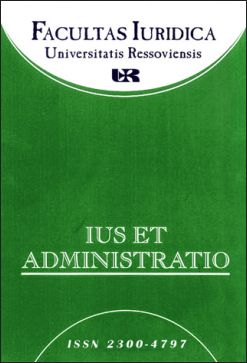Judicial Vindictiveness in American Law
Keywords:
judge, vindictiveness, defendant, conviction, Pearce, presumption, retaliation, sentence, appeal, constitutional rightsAbstract
Judicial vindictiveness is a concept contained in the verdict of the Supreme Court of the United States of 1969, which forbids judicial retribution in the form of an increased sentence when a defendant receives a new trial. The principle of a due process requires that a defendant should not be afraid of judicial vindictiveness. New conviction of the same offense has a consequence, that the time served in prison must be “fully credited”. When a trial judge decides to impose a greater sentence on retrial, he must affirmatively state the reasons for imposing a harsher sentence. Judicial vindictiveness may play no part in the resentencing process. If retaliation motivates the imposition of a severer sentence on reconviction, it is imposed in violation of the fourteenth amendment of the Constitution which guarantees a due trial. On appeal, a reviewing court will invalidate the sentence. The State is not allowed to penalize a person by imposing a harsher sentence, because he executes his rights. The defendant should not fear retaliation for successfully challenging first conviction. The constitutional right to appeal may not be limited by the perspective of retaliation.
Downloads
Downloads
Published
How to Cite
Issue
Section
License
Copyright (c) 2014 Ius et Administratio

This work is licensed under a Creative Commons Attribution-NonCommercial-NoDerivatives 4.0 International License.

